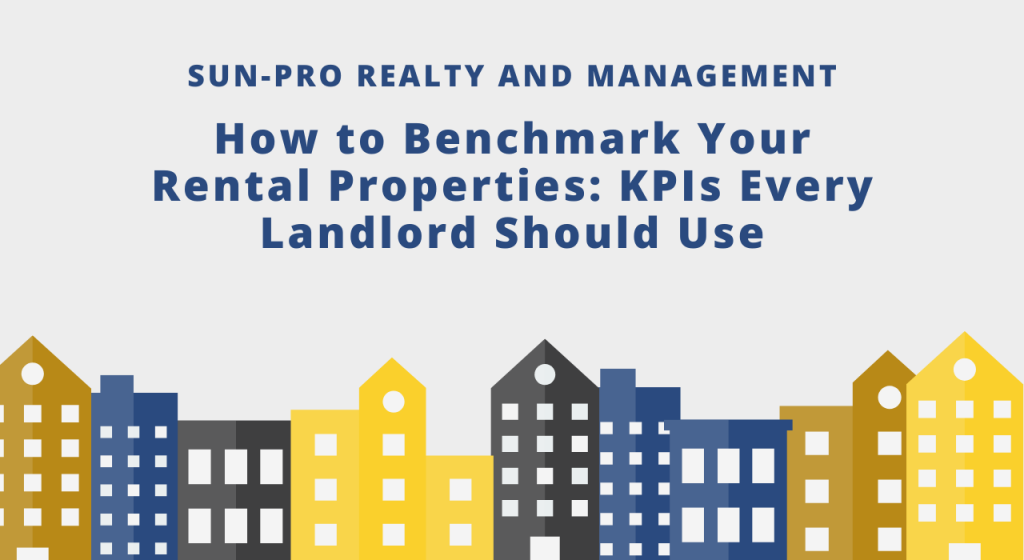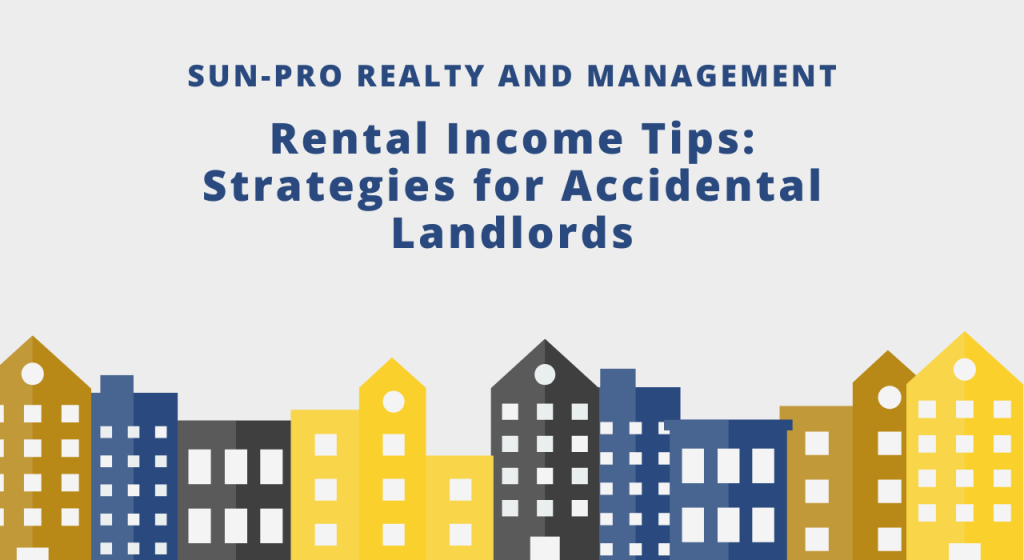
Property Investment for Retirement: Passive Income with Real Estate
Key Takeaways Prioritize cash flow stability over appreciation for retirement. Choose properties with strong rental demand, long-term lease potential, and manageable debt so income remains reliable when you shift from earning to living off assets. Structure investments to become truly passive. Delegate leasing, maintenance, and compliance to professional management early so the property operates on systems, not your time, by the time you retire. Align property type and timing with your retirement horizon. Acquire growth-focused assets earlier,…
Continue Reading...
How to Benchmark Your Rental Properties: KPIs Every Landlord Should Use
As a landlord, do you really know how much you spend managing your rental property, from repairs to vacancies, and how these costs affect overall performance? Many property owners rely on guesswork, but the most successful landlords make decisions based on hard data. At Sun-Pro Realty and Management, we emphasize the importance of tracking key performance indicators, or KPIs, to measure and benchmark the health of your rental properties. Understanding these metrics allows you to optimize operations, increase profitability, and make informed in…
Continue Reading...
The Role of Social Media in Property Marketing
Real estate investing is a business built on strategy, and marketing plays a critical role in driving growth and profitability. How investors approach marketing often determines the reach and success of their properties. At Sun-Pro Realty and Management, social media is a key component of property marketing, helping increase visibility, attract qualified buyers and tenants, and build trust. In this post, we explore the role social media plays in effective property marketing today. Learn More About Our Services! Why Marketing Matters in Real E…
Continue Reading...
How to Transition from Accidental Landlord to Active Investor
Key Takeaways Mindset and Strategy Are Crucial: Successful rental ownership begins with a deliberate approach. Viewing your property as a long-term investment and setting clear goals helps even accidental landlords transition into active investors. Systems, Processes, and Metrics Drive Success: Treating your rental as a business, mastering key performance metrics, and implementing organized systems for tenant management, maintenance, and finances are essential for maximizing income and scaling your portfolio. The Right Team Makes a Difference…
Continue Reading...
Rental Income Tips: Strategies for Accidental Landlords
Key Takeaways Systems Matter More Than Effort: Most accidental landlords struggle not because they lack effort, but because they lack systems. Proper ownership structure, financial organization, leases, and maintenance planning are essential to reducing workload while increasing profitability. Income Depends on Market Knowledge and Tenant Quality: Competitive rent pricing, property upgrades, strong marketing, and thorough tenant screening directly impact rental income. Understanding your local market and attracting the right tenants prevents …
Continue Reading...